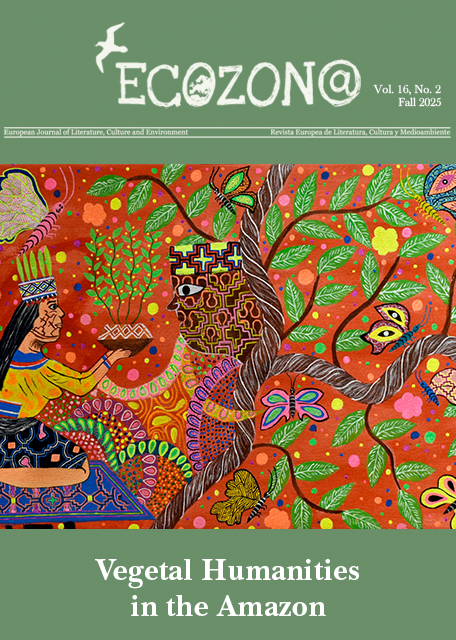Hip Hop Naturalism: A Poetics of Afro-pessimism
DOI:
https://doi.org/10.37536/ECOZONA.2022.13.1.4441Schlagworte:
Hip hop, American literary naturalism, Darwinism, Afro-pessimism, PoeticsAbstract
This article examines the cross-discursive constellation of hip hop studies, ecocriticism, Black Studies, and literary studies. It proposes the notion of “hip hop naturalism” to come to terms with the way in which current U.S.-American rappers express their social ecologies. Taking its cue from scholars such as Imani Perry, Gregory Phipps, and Kecia Driver Thompson, the article argues for the relevance of literary naturalism in contemporary forms of cultural expression: not merely in the audiovisual archives of TV or film, but in hip hop lyricism. Greve scrutinizes how rap has dealt with themes of social heredity, cultural ecology, and structural racial violence by using similar or even identical diction to that of turn-of-the-twentieth-century American literary naturalists. Furthermore, juxtaposing the essentializing aspects of post-Darwinian discourse with those of Afro-pessimism, the article ultimately argues that what Darwinism was to authors like Theodore Dreiser, Jack London, and Frank Norris, Afro-pessimist discourse is to major representatives of contemporary rap, including Mobb Deep, Danny Brown, Earl Sweatshirt, and Kendrick Lamar. The writings of Frank Wilderson III and other scholars within current Black Studies thus figure as a social-philosophical grounding on which the given lyricist might map his or her own take on the lived experience of the black individual in contemporaneity. While racial inequality has always been a central notion within hip hop literature and culture, it is this naturalist bent that renders possible a more thoroughly ecocritical reading of how rap songs both underscore and subvert, with critical defiance, the systemic naturalization of black life as inferior.
Downloads
Downloads
Veröffentlicht
Ausgabe
Rubrik
Lizenz
Authors who publish with this journal agree to the following terms:
a) Authors retain copyright and grant the journal right of first publication with the work simultaneously licensed under a Creative Commons Attribution License that allows others to share the work with an acknowledgement of the work's authorship and initial publication in this journal (CC BY-NC for articles and CC BY-NC-ND for creative work, unless author requests otherwise.
b) Authors are able to enter into separate, additional contractual arrangements for the non-exclusive distribution of the journal's published version of the work (e.g., post it to an institutional repository or publish it in a book), with an acknowledgement of its initial publication in this journal.
c) Authors are permitted and encouraged to post their work online (e.g., in institutional repositories or on their website) prior to and during the submission process, as it can lead to productive exchanges, as well as earlier and greater citation of published work (See The Effect of Open Access).










